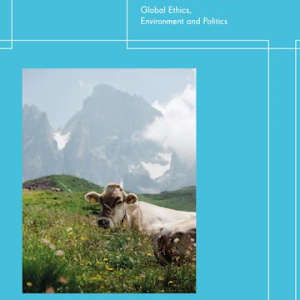
This book explores the ethical, environmental and social issues linked to different forms of dairy production around the world, including smallholder production and intensive feedlots. It also discusses the shift towards plant-based substitutes for dairy.
Publisher’s summary
How do we achieve food security for a global population now over 7 billion people and trending towards 10 billion by 2050? This study of the global dairy industry examines how to balance our needs with those of animals and the environment. It scrutinises ruminant bovines' worrying exhaling of methane, a greenhouse gas which, fortunately, evidence shows can be reduced by adding seaweed to cattle feed. Are the multi-thousand-cow mega-dairies of the USA appropriate models for Africa and Asia's high-growth dairy regions, where so many women are smallholders? Is it ethical to keep cows in confined animal feeding operations (CAFOs), eating unnatural high-energy/low fibre diets when they prefer grazing pasture? Other issues include hormones for oestrus stimulation, and GMOs for milk yield, stressing cows' immune systems and drastically shortening longevity. This book offers multifaceted discussion of the central and ancillary issues relevant to dairying, and consumption of plant- and laboratory-based foods in the 21st century. No book to date offers such a comprehensive overview, linking ethics, environment, health and policy-making with in-depth coverage of the major dairy farming regions of the world.
Reference
Scholten, B. (2022). Dairy Farming in the 21st Century: Global Ethics, Environment and Politics. Bloomsbury Academic, London.
Read more here. See also the TABLE explainer Focus: the difficult livestock issue.












Post a new comment »